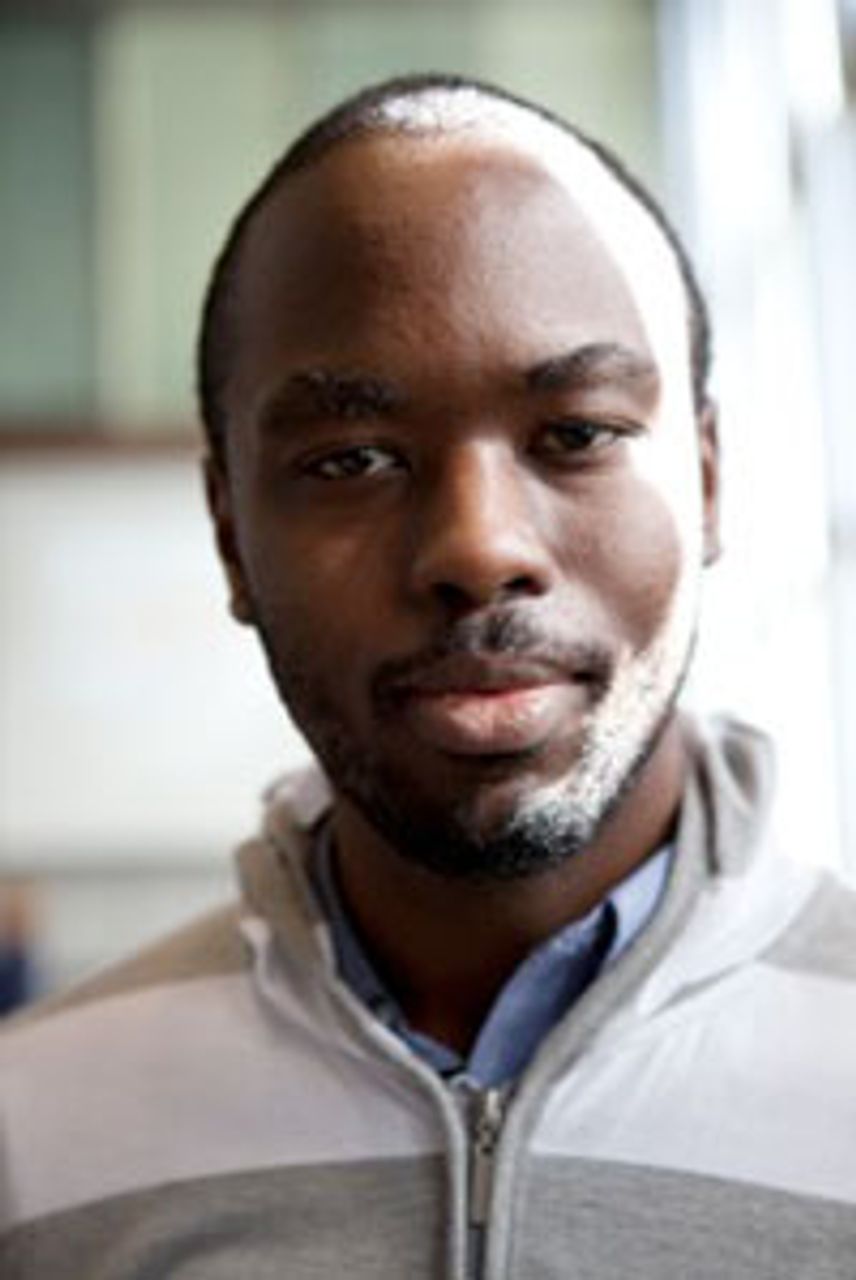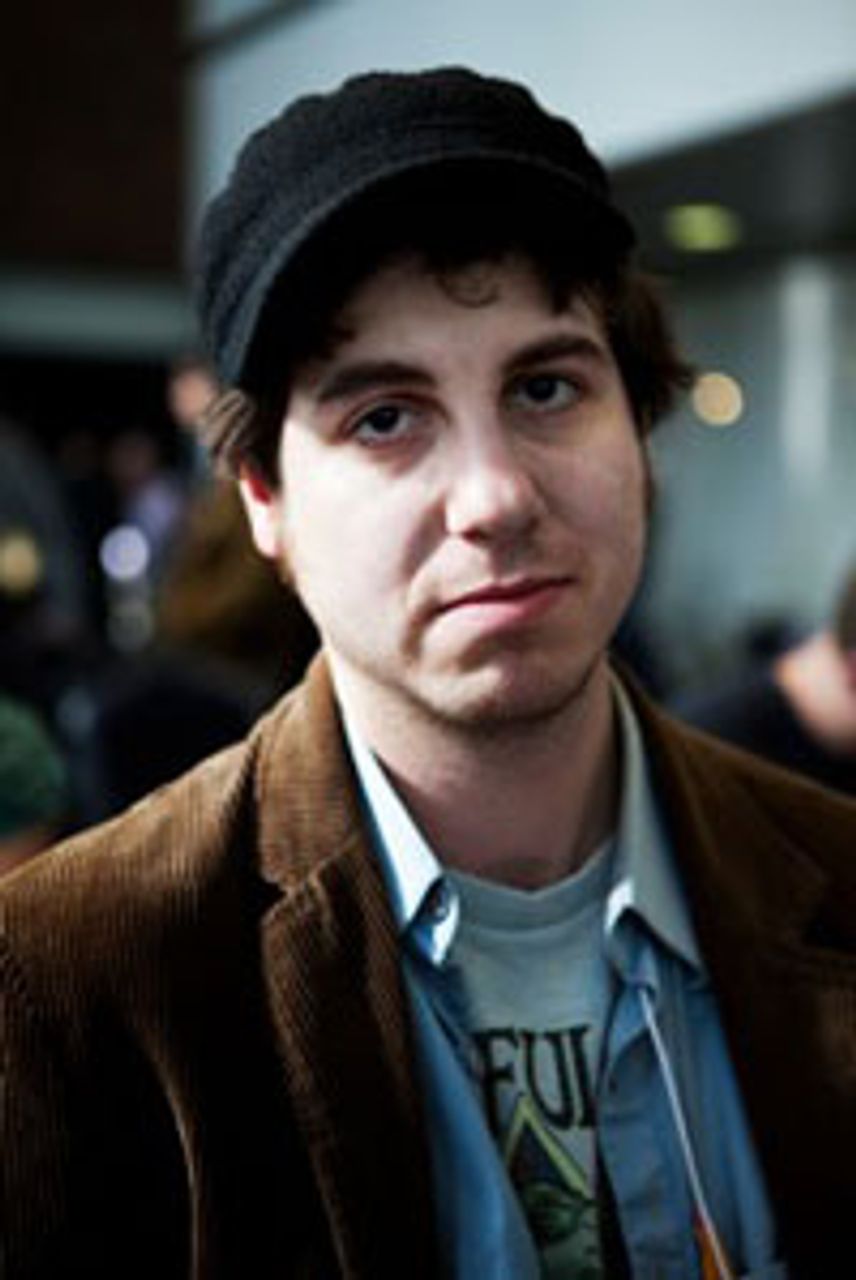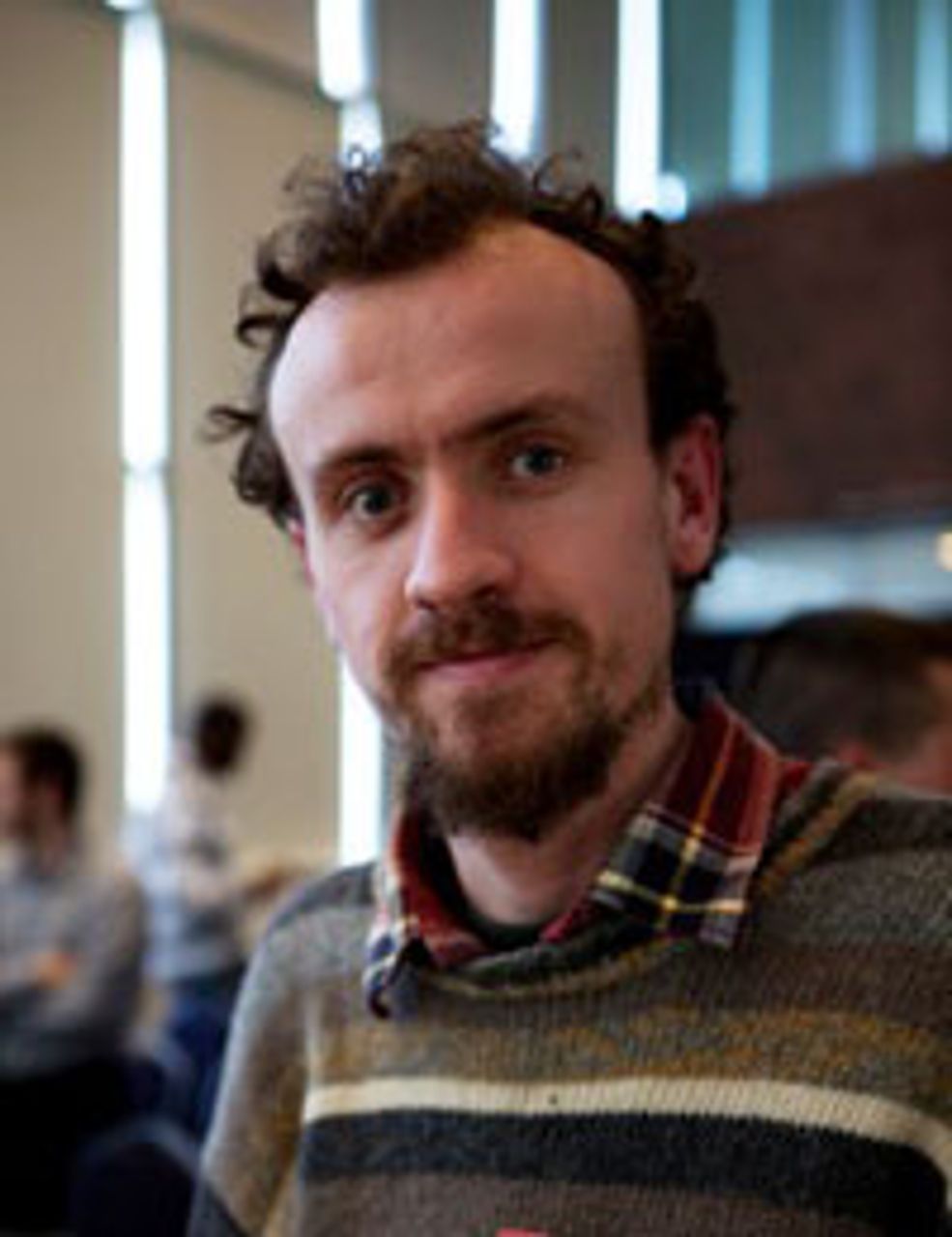On Saturday, April 30, over 70 people attended the Fight for Socialism Today conference at the Borough of Manhattan Community College (BMCC) in New York City.
The conference, sponsored by the Socialist Equality Party (SEP), the International Students for Social Equality (ISSE) and the World Socialist Web Site, drew students from BMCC, Brooklyn College, the New School and New York University, as well as other schools in New York and Pennsylvania.
Workers, artists, teachers and professionals also attended from New York City, Buffalo, Binghamton and other communities in upstate New York as well as New Jersey, Pennsylvania, Connecticut, Maine, Massachusetts, Virginia and Washington DC.
This was the third and final regional conference held by the SEP in April following successful gatherings in Ann Arbor, Michigan on April 9-10 and Los Angeles, California on April 16.
These conferences were called by the SEP to build a new, socialist leadership in the working class that will take up the struggle against budget cuts, mass unemployment and the imperialist wars now being waged in Iraq, Afghanistan and Libya.
The conference discussed, voted on and passed two resolutions: “The Attack on the Working Class and Fight for Socialism” and “No to Imperialist War in Libya! Withdraw All Troops from Iraq and Afghanistan.” A panel of speakers included SEP National Secretary Joe Kishore, ISSE National Secretary Andre Damon, and SEP National Chairman David North. World Socialist Web Site writer Bill Van Auken chaired the conference.
In his opening remarks, Joe Kishore noted that eight months ago the Socialist Equality Party at its first National Congress had adopted the program, “The Breakdown of Capitalism and the Fight for Socialism in the United States,” which outlined a series of fundamental rights for working people, including the right to a job, the right to a livable income, the right to housing, health care and a secure retirement.
Workers, the program said, would come into a struggle to defend these rights, bringing them into conflict with the capitalist system, for which a socialist program would offer the only way forward.
“The events of the past two and half years have certainly confirmed these conceptions,” Kishore told the conference. He outlined the rapid development of mass struggles around the globe fueled by the economic crisis, including the uprisings in Tunisia and Egypt as well as in Yemen, Syria and Bahrain, and the problems of leadership that were raised in these struggles. In particular, he reviewed the response of the Obama administration in its support for the Arab dictatorships and the direct assault on Libya.
Kishore also examined the American ruining elite’s attacks on workers in the US with the deep budget cuts put forward by the Republicans and the Obama administration alike.
These budget cuts brought about an initial mass response from working people in Wisconsin. The SEP, he noted, had intervened in this struggle. “In the coming months, as workers throughout the country begin to fight back, we have every confidence that a socialist perspective will win a mass audience,” he said.
A wide-ranging discussion followed on the nature of the crisis of leadership in the working class and, in particular, on the historical development of the American trade unions.
SEP National Chairman David North made a presentation reviewing the incomes of the trade union bureaucracy and the social position of union officialdom.
North also analyzed a strategic planning document of the United Auto Workers, including its appeals to corporate interests and its attempts to suffocate the class consciousness in the working class.
The resolution on Libya also evoked considerable discussion, including issues such as the role of the social layer of ex-radicals who have embraced imperialism in the name of a war launched on “humanitarian” pretenses.
The World Socialist Web Site spoke to a number of those who attended the conference.
 Josiah
JosiahJosiah, a BMCC student from Brownsville in Brooklyn, said, “I came here to find out about socialism. I’ve had some conversations before, so I wanted to go to this conference and hear about the movement and learn how to connect. I’ve been keeping an open mind about the political situation, moving beyond the Democrats and Republicans.
“One of the things that stuck out most was the discussion on the Obama and the war. It showed Obama’s part in imperialism, with his doctrine that calls for war when countries go against American values.
“I think it’s important to get to know more about these issues and more about socialism, and to connect with this political movement.”
 Ryan
RyanRyan, a student from Ithaca, New York, told the WSWS, “This conference is tackling the crisis of leadership. This is such a big question. I first started getting involved with the ISSE and the SEP back in February at Cornell when they held meetings to discuss what was happening in Egypt and what was going on in Wisconsin. In Egypt the media tries to portray that since the military has taken over, everything is going to be hunky-dory. Well, since when has the military taken control and ever returned power to the people? It just doesn’t happen that way.
“Here the Democratic Party is always trying to play against the Republican Party and visa versa in massive corporate campaigns. It’s amazing to see how much money and energy is put into the one beating the other as they reduce the discussion to a couple of wedge issues, while in the back room they’re agreeing to make massive cuts.
“It’s because they’re all in the pockets of the banks and big business, and the labor unions are part of it. Any positive change is not something that’s going to be just handed down to working people—if people don’t stand up and fight for their interests then things will be constantly taken away.
 Rhett
RhettRhett, a student from Widener University in Pennsylvania, said, “I voted for Obama in 2008. I think a lot of people my age had a lot of high hopes for him. My feeling is that at best he’s just not what people thought he was and at worst he’s just another scheming politician whose aims are pretty much the same as Bush’s in terms of his class loyalties. I have family members and friends who continue to say, ‘Oh, Obama’s just hamstrung.’
“But even if you’re willing to grant that, then you realize the problem is systemic. There’s now a lot of cynicism and some still want to give him the benefit of the doubt even though things haven’t worked out the way everyone hoped they would after his election.
 Ed
Ed“I came here today to become more informed and to deepen my political education, and to get more involved. The SEP has a commitment to a principled political program that is unique. I agree that people need to fight. In terms of what needs to happen, I’m open to radical change, systemic change in the economic system and existing social conditions. There needs to be a connection with the struggles of the working class and students.”
Ed, a playwright from Queens in New York City, said, “I found the conference very educational. The perspective that was put forward was extremely honest. I was always interested in learning more about socialism, but feared there were a lot of ‘posers’ who simply claimed the name.
“In 2008, I voted for Obama hoping something would be done about the amount of poverty facing the working class, but I’ve seen no change and now feel that it was naïve of me to trust Obama.”
